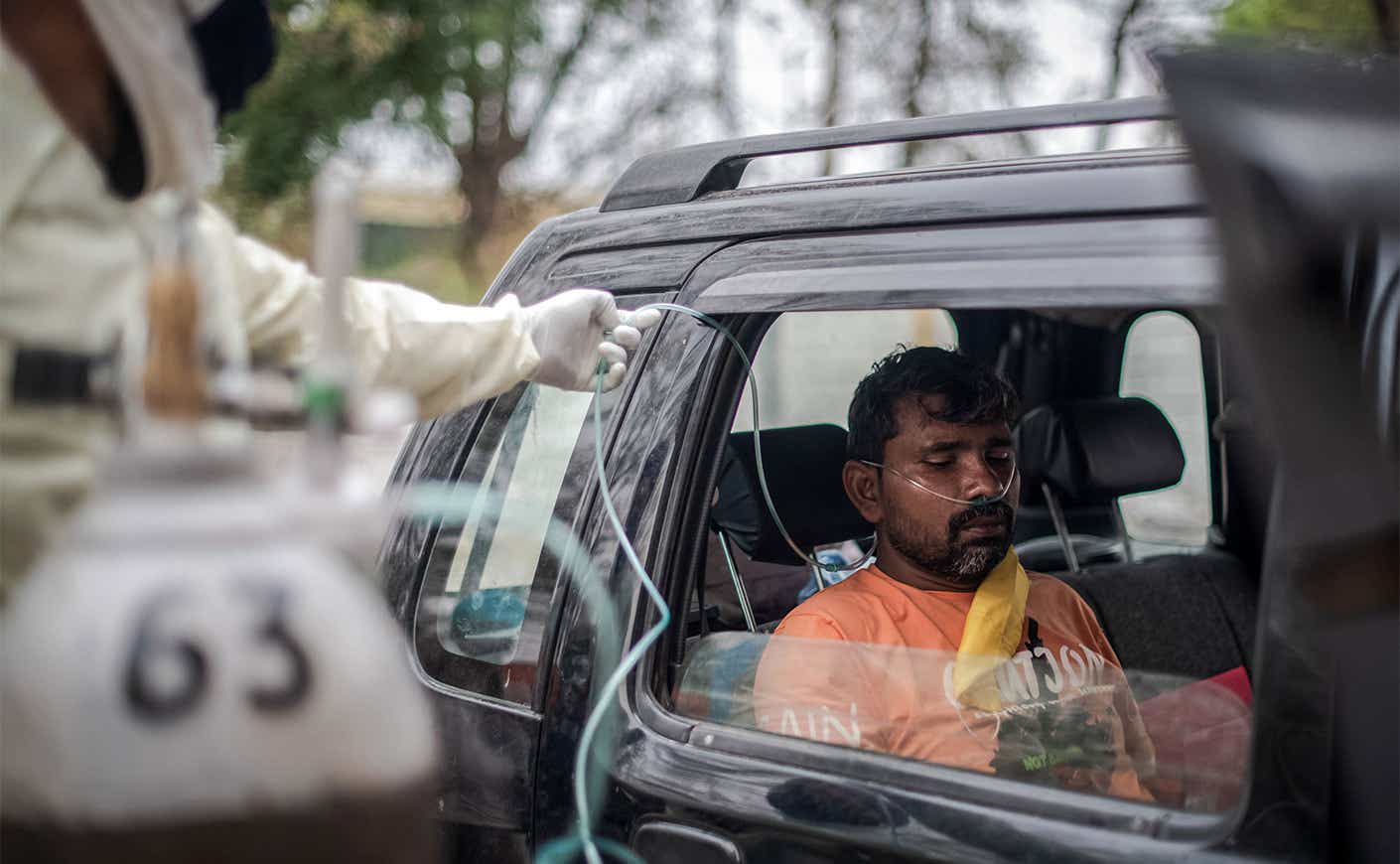Just one month ago, India thought it had seen the worst of the Covid crisis — today, it's the global epicenter.
The country set a pandemic record Saturday with 400,000 new cases and the death toll is projected to reach 1 million by August 1st.
Journalist Vidya Krishnan has been covering health and science in India for two decades. I spoke with her about the devastation facing her country..
Katie Couric: First off, How are you doing personally?
Vidya Krishnan: Thank you for asking me that question. I am in a state of whiplash. Every morning I look at my phone and a moving tally of people [who have died]….I've attended zoom funerals for friends. The zoom funerals some of my friends could not attend because they had four family members down with COVID.
If I were to arrive in India right now, what would it look like?
In Delhi right now, while we are focused on the medical tragedy unfolding at hospitals, the truth is the system has collapsed. This was a very poorly funded health infrastructure held together by spit and duct tape. And it has collapsed. But along with it, there is so much anger on the streets that for the first time in the prime minister’s two terms, his posters are being attacked...The government is missing in action [while] still conducting super-spreader events like election rallies, but ten times the size of what Donald Trump was doing.
What needs to be done?
What immediately needs to be done is the men of science in my country should take charge of the pandemic response. It should be nonpartisan because even now, with aid pouring in, the BJP government is not sending it to states where it is not in power, starting with the national capital of Delhi, where the prime minister lives.
How can Prime Minister Modi be so heartless?
This conversation about how is Modi so careless, cannot be had without the conversation about how Hindu majority Indians are that careless. These are deaths that were happening to lower castes, who are poorer Indians, in a system of medical apartheid, where the rich Indians got the best care and the same quality of life in Mumbai or Delhi or Bangalore that you have in Paris or New York, or over here in Boston. And they were okay with it. Now, with the pandemic, that bubble has burst. Now, the pandemic has been a great equalizer as it is for the Western world.
How many people in India have gotten the vaccine?
2% of the population.
Meanwhile, Western countries have been criticized for stockpiling vaccines and guarding patients...
The Indian government is asking Pfizer to let go of the patent on the mRNA vaccine. Why is the vaccine developed by Indian taxpayers’ money the most expensive in the world? Yesterday I got my first shot here in Boston for free at Walgreens. In India, each shot is $10 to $15...We are the vaccine manufacturing hub of the world. So this is not one of those tragedies that just happened when solutions were not there. This is deliberate by design. [This is] what happens when you keep medicines in a patent law that was designed to govern technology. Refrigerators and apples and iPhones and Macs cannot be legally governed by the same rules as life-saving drugs because Brown and Black people die.
How do you see this unfolding?
I’ve spoken to epidemiologists at Harvard, where I am, and at McGill University in Montreal. They tell me that the UK variant has spread to 20 countries, the Brazilian variant to 30 countries...People are not protected against [these] mutant variants, so six months from now, we will again be looking at lockdowns. The pandemic does not end unless it ends everywhere.
**Here is more information on how to help**









